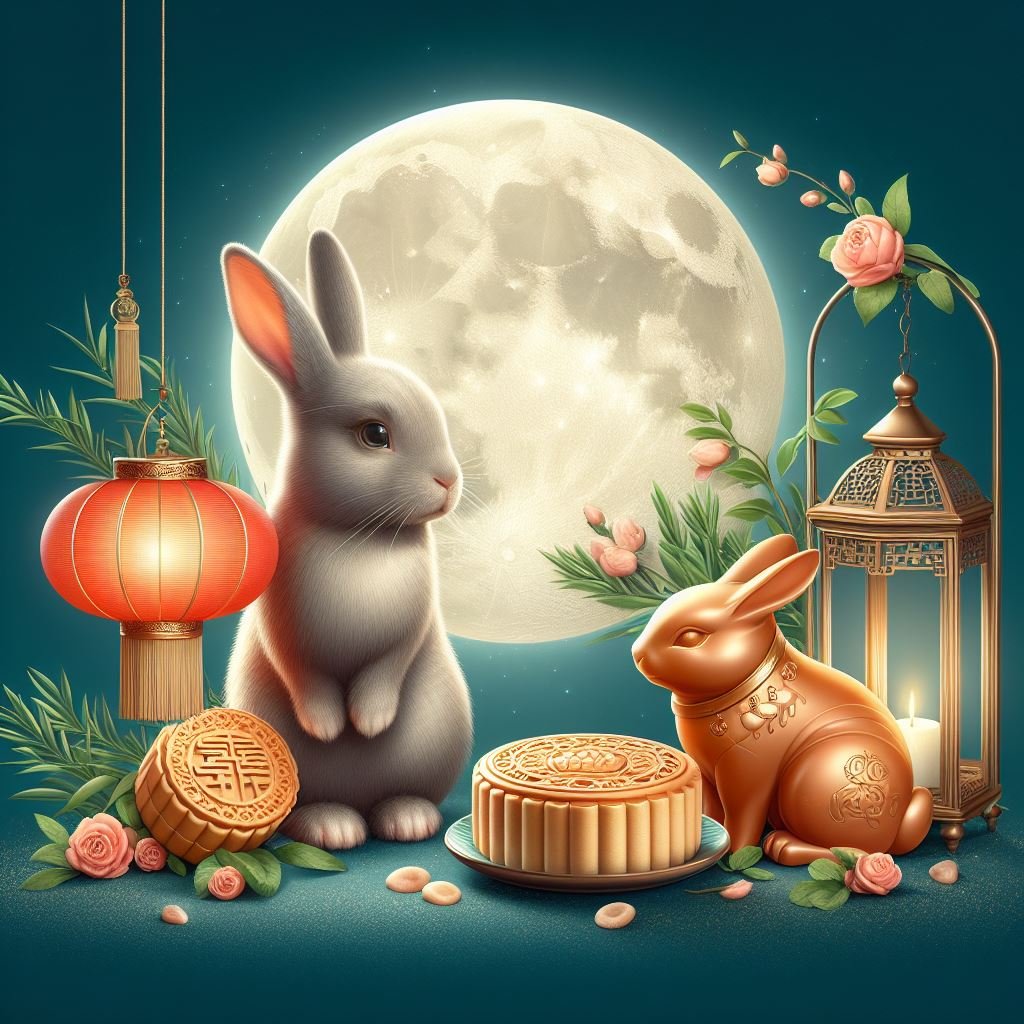Rabbits are one of the most popular pets in the world, with an estimated 200 million domesticated rabbits living in households across the globe. However, not many people know that rabbits have a long and rich history in China, where they are considered to be a symbol of luck and prosperity. In this article, we will explore the origins and significance of rabbits in Chinese culture, as well as some tips and advice for anyone who wants to adopt a rabbit as a pet in China. Let’s learn more about Rabbits in China.
The Origins of Rabbits in China

Rabbits are native to many parts of Asia, including China, where they have been living for thousands of years. According to ancient Chinese mythology, rabbits were the companions of the moon goddess Chang’e, who flew to the moon after drinking an elixir of immortality. There, she lives with a jade rabbit, who is said to be able to make medicine by pounding herbs with a mortar and pestle. The jade rabbit is also known as the moon rabbit, and is often depicted on the surface of the moon in Chinese art and literature.
The moon rabbit is not the only mythical rabbit in Chinese culture. There is also the rabbit god Tu’er Ye, who is the patron deity of fertility, childbirth, and children. He is believed to be able to grant wishes and bless couples with offspring. He is usually portrayed as a white rabbit with red eyes, wearing a red scarf and holding a gourd. He is often accompanied by a group of childlike rabbit spirits, who help him in his tasks.
The Significance of Rabbits in China

Rabbits are not only associated with the moon and fertility, but also with luck and prosperity. This is because the Chinese word for rabbit, tu (兔), sounds similar to the word for abundance, fu (福). Therefore, rabbits are seen as a sign of good fortune and wealth. In addition, rabbits are one of the 12 animals of the Chinese zodiac, representing the fourth year in the 12-year cycle. People born in the year of the rabbit are said to be gentle, kind, elegant, and graceful. They are also good at socializing and making friends.
Rabbits are also featured in many festivals and celebrations in China, especially during the Mid-Autumn Festival, which falls on the 15th day of the eighth lunar month. This festival is also known as the Moon Festival, as it is a time to admire the full moon and express gratitude for the harvest. During this festival, people eat mooncakes, which are round pastries filled with various ingredients, such as lotus seed paste, red bean paste, nuts, or egg yolk. Some mooncakes have a rabbit-shaped imprint on the top, symbolizing the moon rabbit and the goddess Chang’e. People also exchange mooncakes as gifts, wishing each other happiness and prosperity.
Another festival that involves rabbits is the Lantern Festival, which marks the end of the Chinese New Year celebrations. It falls on the 15th day of the first lunar month, which is also the first full moon of the year. On this night, people light up lanterns of various shapes and colors, and enjoy riddles, games, and performances. One of the most popular lanterns is the rabbit lantern, which is made of paper or silk, and has a candle inside. The rabbit lantern is said to bring good luck and ward off evil spirits. Children often carry rabbit lanterns and follow a parade of lion and dragon dancers, creating a festive atmosphere.
Know These Before Adopting a Rabbit in China

If you are interested in adopting a rabbit as a pet in China, there are some things you need to know before you make your decision. First of all, you need to be aware of the legal and ethical issues involved in owning a rabbit in China. According to the Animal Protection Law of the People’s Republic of China, which was enacted in 2018, rabbits are classified as companion animals, and are entitled to basic rights and welfare. This means that you have to provide your rabbit with adequate food, water, shelter, veterinary care, and a suitable environment. You also have to prevent your rabbit from causing harm or nuisance to others, and report any cases of abuse or neglect to the authorities.
However, not all rabbits in China are treated with respect and compassion. Many rabbits are bred and sold in pet shops, markets, or online platforms, where they are often kept in cramped and unsanitary conditions. Some rabbits are also used for fur, meat, or experimentation, and are subjected to cruel and inhumane practices.
Therefore, if you want to adopt a rabbit in China, you should avoid buying from these sources, and instead, look for reputable and responsible breeders, or better yet, adopt from a shelter or rescue organization. By doing so, you can help reduce the demand for unethical rabbit trade, and give a loving home to a rabbit in need.
Secondly, you need to be prepared for the responsibilities and challenges of owning a rabbit in China. Rabbits are not low-maintenance pets, as they require a lot of care and attention. You have to provide your rabbit with a spacious and secure cage, as well as toys, bedding, and litter. You also have to feed your rabbit a balanced diet of hay, fresh vegetables, and pellets, and provide fresh water daily. You have to groom your rabbit regularly, and trim their nails and teeth when necessary.
You also have to spay or neuter your rabbit, as this can prevent unwanted pregnancies, behavioral problems, and health issues. Moreover, you have to take your rabbit to the vet for regular check-ups and vaccinations, and seek medical attention if your rabbit shows any signs of illness or injury.
One of the biggest challenges of owning a rabbit in China is finding a suitable vet. Not all vets in China are familiar with rabbits, as they are more used to treating dogs and cats.
Therefore, you have to do some research and find a vet who has experience and knowledge in rabbit medicine and surgery. You also have to make sure that the vet is licensed and accredited by the relevant authorities, and has access to the necessary equipment and facilities. You also have to be prepared for the costs of veterinary care, which can vary depending on the location, service, and quality. You may want to consider getting pet insurance for your rabbit, as this can help cover some of the expenses in case of emergencies.
Another challenge of owning a rabbit in China is traveling with your rabbit. If you want to take your rabbit with you on a trip, whether it is within China or abroad, you have to plan ahead and follow the rules and regulations of the destination. You have to obtain the necessary documents and certificates for your rabbit, such as a health certificate, a rabies vaccination certificate, and a microchip.
You also have to check the quarantine and customs requirements of the destination, and make sure that your rabbit meets the criteria. You also have to find a suitable carrier and mode of transportation for your rabbit, and ensure that your rabbit is comfortable and safe during the journey. You also have to find a pet-friendly accommodation and activities for your rabbit, and keep an eye on your rabbit’s health and behavior.
Conclusion
Rabbits are more than just cute and fluffy animals. They are also an important part of Chinese culture and history, and have a lot of meaning and symbolism. If you want to adopt a rabbit as a pet in China, you have to be aware of the legal and ethical issues involved, and be prepared for the responsibilities and challenges of owning a rabbit in China. By doing so, you can enjoy a rewarding and fulfilling relationship with your rabbit, and share the luck and prosperity that rabbits bring.


Thank you for your sharing. I am worried that I lack creative ideas. It is your article that makes me full of hope. Thank you. But, I have a question, can you help me?
I don’t think the title of your article matches the content lol. Just kidding, mainly because I had some doubts after reading the article.